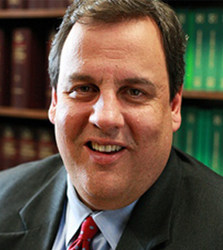
Super PACs Ride to the Rescue of Faltering Candidates
As current New Jersey Republican Chris Christie struggles to qualify for next week’s prime-time debate on CNN, other candidates are just hoping to achieve relevance and rise past (or even get to) the 1 percent level in polls. Several “super PACs” plan to ride to the rescue to boost these faltering candidates’ chances (super PACs can raise unlimited contributions but cannot legally coordinate their efforts with campaigns, although the definition of “coordinate” is a bit tricky). Here’s a sample of media coverage on how these independent organizations are trying to help out:
Super PAC supporting Chris Christie launches new ad
America Leads, the super PAC supporting Chris Christie's presidential candidacy, is launching its third ad Wednesday, focusing on the New Jersey governor's record on tax reform….
America Leads is airing the ad in New Hampshire and Boston cable and broadcast. The group would only characterize the buy as "significant."
The ad comes out eight days before the second GOP debate - at this point it's unclear whether Christie will qualify for the top-tier debate.
Christie is on the edge regarding debate qualification, but it’s unlikely a New Hampshire and Boston ad buy will give him much of a boost in national poll numbers to keep him on the main stage. He may not need the help at this stage, as the RealClearPolitics.com polling average shows Christie currently in 10th place, tied with Kentucky Sen. Rand Paul at 2.8 percent (CNN is not using the RealClearPolitics.com averages, but they do give a good sense of where candidates stand at the moment).
Beyond Christie, several Republican hopefuls are hoping super PACs can keep their hopes alive. South Carolina Sen. Lindsey Graham has been mired at around 1 percent in recent polls, but a large ad buy in New Hampshire may help turn things around for him:
Super PAC spends big on ads boosting Lindsey Graham
A super PAC supporting Sen. Lindsey Graham’s presidential bid began airing $1 million worth of cable TV commercials in New Hampshire on Friday. The ads highlight Graham’s military career and national security focus….
Graham, R-S.C., one of 17 Republican presidential candidates, has hovered around 1 percent in national polls. The New Hampshire ad buy fits with Graham’s focus on the early primary state, where he’s spent many weeks on the campaign trail….
Security is Strength had about $2.7 million at the end of July, according to its most recent Federal Election Commission report.
The ad buy targeting New Hampshire voters won’t boost Graham’s national numbers, but if he can rise in the Granite State it could cause national media to give him more attention and consider him a serious contender, which in turn might boost those national numbers down the road.
While it’s too early to tell if Graham’s super PAC will have the hoped-for impact, Louisiana Gov. Bobby Jindal seems to have benefited from the work of Believe Again, the independent committee supporting his race. According to an August 2015 story in The Washington Post, the group had run more than $900,000 in ads in Iowa and hosted more than a dozen events with potential caucus-goers and Jindal as the invited guest.
While Jindal doesn’t even register in national polls, his standing in Iowa has risen in recent weeks – thru June of this year he had been between 0 and 2 percent in most polls, but since July has seen his poll numbers rise to the point where the two most recent polls show him at 4 and 5 percent, according to RealClearPolitics.com.
Another bottom-tier candidate hoping a super PAC can save his campaign is former Texas Gov. Rick Perry. The Des Moines Register reports that a state director has been hired for the Opportunity & Freedom PAC and given the mission of reviving a flagging campaign:
Perry's Iowa campaign can use some help from the separate Super PAC after encountering financial struggles that have resulted in the loss of its Iowa campaign chairman and co-chairman to other presidential campaigns. Perry's Iowa campaign has been reduced to just one paid staffer, which has led to predictions he could be the first of the 17 Republican presidential candidates to pull out of the race. The Des Moines Register's Iowa Poll showed Perry with 1 percent support in Iowa in August.
However, Critchfield said he plans to oversee a "state-of-the-art ground game" for Perry that will include dozens of paid staffers going door-to-door and working the phones to identify Iowa supporters and potential supporters.
Perry’s super PAC reportedly has close to $17 million available to spend, and they’ve spent some of it on ad buys in the early state of Iowa, but there has yet to be a major ad buy that might get him out of the cellar.
Former Pennsylvania Sen. Rick Santorum also has a super PAC supporting his candidacy (two, in fact), although there has been relatively little visible activity supporting him. Former New York Gov. George Pataki’s super PAC has been running ads in New Hampshire for some time, according to The New York Times, although there’s not much evidence they’ve done anything to boost his candidacy (neither the national nor the New Hampshire polling information at RealClearPolitics.com includes Pataki). Former Virginia Gov. Jim Gilmore does not appear to have a super PAC supporting his candidacy.
For candidates stuck at the bottom (or on the edge of qualifying for the prime-time debate in Christie’s case), a super PAC can give a desperately-needed boost at the right time. But aside from Jindal, at this point it’s difficult to see how these independent groups have made much of a difference in getting their favorite into position to become a viable candidate.



